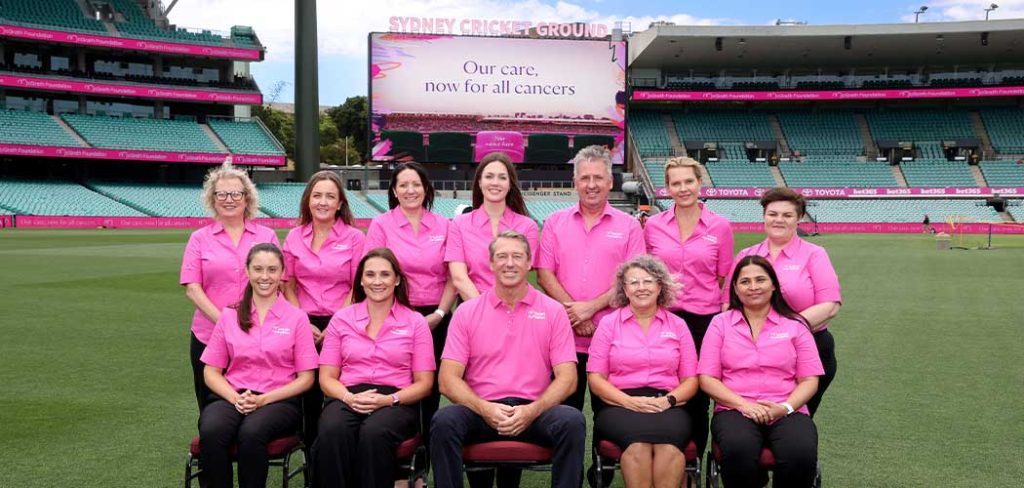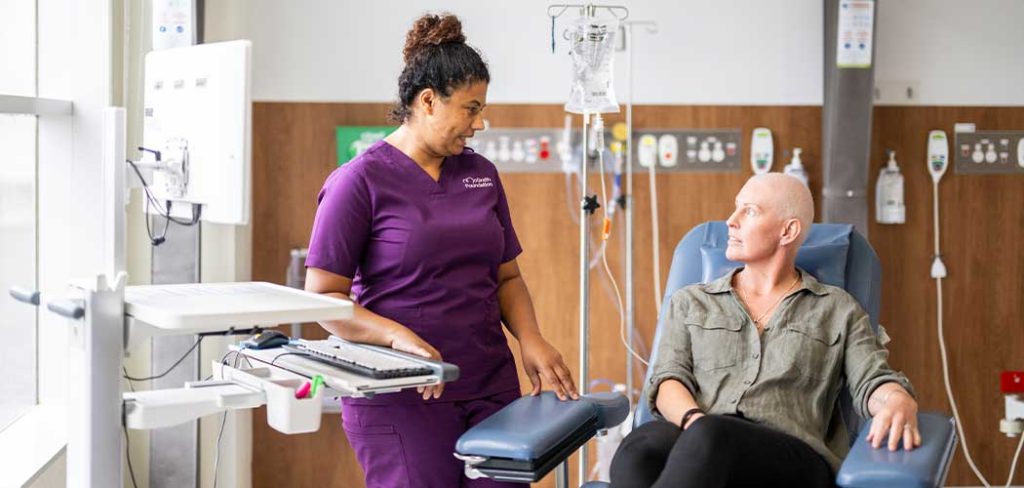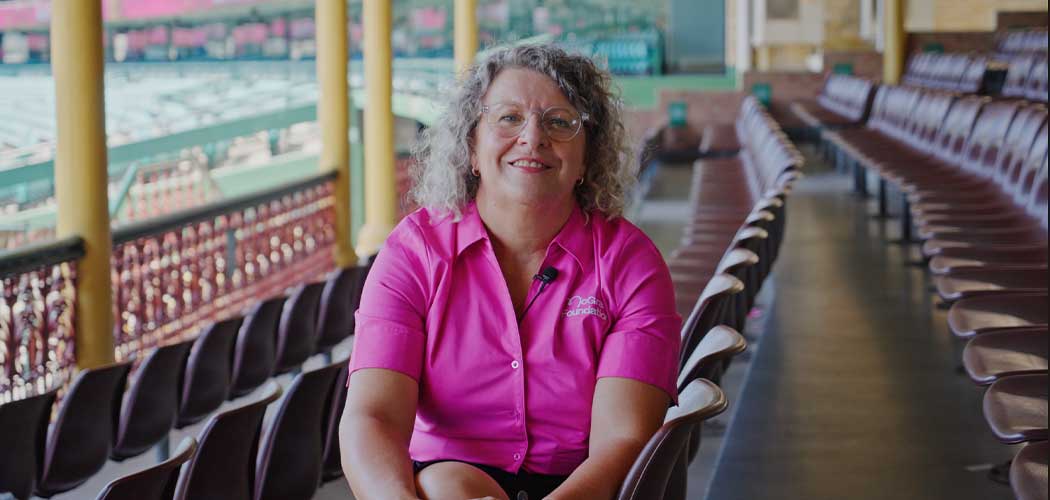The federal government kicked off 2025 with commitment for $2.3 million to the McGrath Foundation to expand an online tool that connects patients with expert cancer care nurses.
Nurses take the chaos out of a cancer diagnosis, says McGrath Foundation Chief Nurse Kerry Patford, who welcomes the charity’s expansion to support patients with any type of cancer.
“There’s that fear of hearing that you have a cancer diagnosis, and then there’s the fear of mortality. People have families, they have jobs, and they have caring responsibilities that are really important to them. All of that flashes by someone when they are given the news that they have cancer. It’s about, ‘ok, what does this mean? What does it look like today, tomorrow, next week?” said Ms Patford (pictured main image).
“’What’s going to happen at my next appointment?’ ‘Where do I go and what’s going to happen after that?’ ‘How much is it going to cost me?’ ‘When will I start to lose my hair?’ ‘When will I have my stoma reversed?’ Those things get lost if people don’t ask them, and sometimes they don’t have anyone to ask. It’s having a nurse that comes in and says this is what’s going to happen, this is what it means. What can we do to make sure you can get through this? What help do you need?”
The comprehensive nursing and navigation service for cancer patients will be available to all cancer patients, no matter where they live, no matter their type of cancer.
Federal Health Minister Mark Butler made the announcement ahead of the fifth Test match, now known as the Pink Test (pictured). “We are determined to make sure that there is equity in cancer treatment, no matter the cancer type,” said Minister Butler.

The McGrath Foundation will provide nurses to support people diagnosed with all adult solid and haematological cancers.
“As a nurse that’s been working in this field for 23 years, I was thrilled to see that we were given the opportunity to close the divide within the cancer sector,” said Ms Patford.
“Breast cancer as one of the leading causes of cancer deaths in Australia and one of the highest diagnosed is well supported for good reason. But we’ve heard along the way that some other cancers just don’t get the support that they need, and so to be able to address that inequity is a real privilege.”
The McGrath Foundation is currently undertaking a national needs assessment that will identify gaps to ensure that nurses will be placed where needed to address those gaps with health services.
Funding will provide for almost 250 Commonwealth-funded McGrath Cancer Care Nurses working across the country by 2027 – with 51 nurses on board by June this year. The Foundation is now developing a new McGrath Model of Care in consultation with the cancer sector to support patients at each stage of the cancer journey.
“There’s already so many resources and services out there but at the moment. This is a great opportunity to provide backup and referral to each other and also to work collectively and have one cohesive current set of information that matches practise that’s able to be used by everyone,” said Ms Patford.
“What’s really important about the McGrath Foundation model is that we do it without a referral. Someone can just ring us and refer themselves and we’re completely free of charge.”

Nursing care provides better outcomes
Quantitative research shows that patients have far better outcomes when they are linked into a cancer care nurse.
“They are more likely to self-navigate and adhere to treatment plans from start to finish and they don’t get lost within the system. They have their symptoms of treatments managed better and they have a far better quality of life and lower rates of anxiety which is enormous following a cancer diagnosis,” said Ms Patford.
Oncology and Cancer Care Nursing as a career path
One of the original McGrath Breast care nurses, Ms Patford started at the McGrath Foundation in 2009 and thoroughly recommends oncology and cancer care nursing as a career.
“I cannot think of a more fulfilling way to work. Being able to create relationships and make a difference at a time when people cannot see any hope is really special,” she said. A willingness to learn, work collaboratively, and to adapt are core skills to work in the specialty.
“Also, the ability to listen to what people are telling you – whether with words or with other signs. And also a willingness to look after yourself. It is intense and emotional work, but for me it’s also nourishing. Even on the bad days, you’re learning something, whether that is a clinical skill or how to live well.”
If you’re interested in becoming a McGrath Foundation cancer nurse current job vacancies are listed on the website.









One Response
As an oncology nurse, this warms my heart.